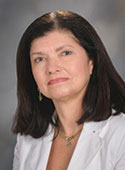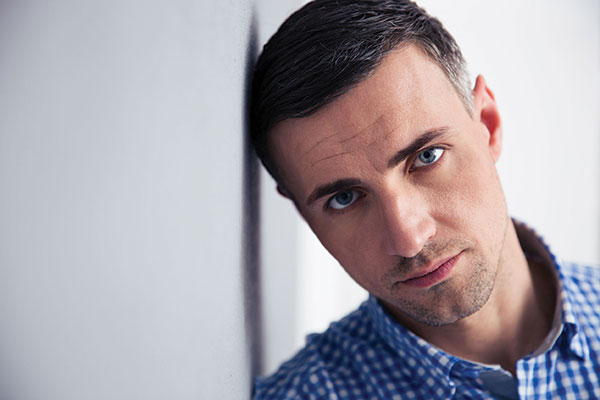Frequently Asked Questions about Cancer-Related Fatigue
by Santhosshi Narayanan, MD and Carmen Escalante, MD
Cancer related fatigue is a very common problem that affects many people living with cancer, as well as cancer survivors. Unlike routine fatigue, which generally goes away after a good night’s sleep, cancer-related fatigue is not fully remedied by rest. To help you better understand this often-distressing side effect of cancer treatment, here are answers to some of the most frequently asked questions about cancer-related fatigue.
Q: I feel tired all the time; what can I do to improve my energy levels?
A: First, you should tell your healthcare provider about your fatigue symptoms. Your doctor will perform an evaluation to figure out if there are any underlying causes of your fatigue, such as poor nutrition, medication side effects, sleep dysfunction, or depression. Treating these conditions may help alleviate your fatigue. However, some people continue to feel fatigued despite such treatment. In this case, conserving your energy by planning and delegating activities may help. Exercise can also play a role in decreasing fatigue. Furthermore, some people may need medications to improve fatigue.
Q: What are some helpful energy conservation strategies?
A: Fatigue can interfere with your daily activities. It’s important to set realistic expectations for yourself and prioritize your activities. Ask others to help with draining tasks and chores. Other helpful strategies include:
- establishing a daily routine
- keeping a diary to identify your peak energy periods
- scheduling activities for those times when you have the most energy
- postponing nonessential activities
- attending to one activity at a time, not multitasking
- sitting down during activities whenever possible
- using handrails, walkers, and grab bars when needed
Q: Can eating a certain diet decrease fatigue?
A: There are no specific dietary recommendations for people with cancer-related fatigue. Eat a sensible, balanced diet that includes proteins, vitamins, minerals, and plenty of fruits and vegetables. Be sure to drink enough fluids to stay hydrated. You can also consult with a nutritionist who can assess your dietary needs and offer you personalized dietary recommendations.
Fatigue can interfere with your daily activities. It’s important to set realistic expectations for yourself and prioritize your activities.
Q: What types of exercise are recommended to beat fatigue?
A: Though it is difficult to be motivated to exercise when you are tired, studies have shown that exercise improves fatigue during all stages of the cancer journey, including after treatment. Moderate aerobic exercise (such as swimming, cycling, or fast walking) for 150 minutes per week, along with two to three sessions of strength training, may help you regain some energy. This needs to be done consistently, and it may take a couple of months of exercise before you begin to feel the effects. Before you start exercising, talk with your doctor about whether you should follow any activity restrictions, especially if your disease has spread to your bones or if you have low blood counts.
Q: I don’t feel refreshed after a night of sleep. What can I do to sleep better and feel more rested?
A: People with cancer may have sleep disturbances, which can lead to daytime fatigue. A good night’s sleep may improve your fatigue. To get better sleep, limit daytime naps, go to bed and wake up at the same time each day, and don’t exercise too close to bedtime. Taking a warm bath or drinking a glass of milk before bed and avoiding caffeine at night may also help. You should also make sure that your bedroom is dark, cool, quiet, and relaxing, as this is the best environment for initiating sleep. If you still have difficulty sleeping, talk with your doctor. Your doctor may prescribe medications, if needed, to help you sleep.
Q: Can pain medications make me feel fatigued?
A: Often, opioids and narcotic pain medications are prescribed for cancer-related pain. One of the major side effects of these medications is drowsiness. For some people, the drowsiness is temporary and will resolve after a few days. However, if your drowsiness is severe or is interfering with your daily life, talk to your doctor. Your doctor can adjust the dosages as necessary, or they may have you try non-opioid pain medications or other medical procedures for pain relief.
Q: Can meditation or yoga help my fatigue?
A: Mindfulness-based stress reduction, meditation, and yoga may all help fatigue. Try out a few different techniques and choose one that works for you. You can also try massage therapy or music therapy. Though there is no compelling evidence or studies to support their use, many survivors find these types of therapy beneficial. Taking part in hobbies or joining a support group may help as well.
Q: Are there any medications that will decrease my fatigue?
A: Fatigue treatment is always customized according to an individual’s needs. Sometimes medications, usually stimulants, are needed to combat fatigue. Side effects of these medications may include jitteriness or headaches, and you will need a prescription from your doctor to use them.
Q: Are there any supplements I can take to help?
A: Studies on using vitamin supplementation to help fatigue have been inconclusive. While supplements, like ginseng, have been examined, there is currently not enough evidence to support the routine use of any supplements to help fatigue. Moreover, some supplements may interact with other medications that you are taking. To avoid potential drug interactions, always talk to your doctor before taking any supplements for any reason.
Q: I’m cancer-free and still feel fatigued. What’s up with that?
A: You may still feel fatigued beyond the period of active treatment, even after you are declared cancer-free. Some people feel fatigued for months or years after treatment ends. Regular follow-up visits with your physician can help determine whether your fatigue is due to any underlying medical conditions, cancer recurrence, or other treatable causes, or if it is simply long-lasting cancer-related fatigue. If your symptoms persist, the fatigue-management strategies discussed here may help.

Dr. Santhosshi Narayanan (left) is an assistant professor in the Department of General Internal Medicine and associate program director of the Onco-Hospital Medicine Fellowship Program at the University of Texas MD Anderson Cancer Center in Houston, TX.

Dr. Carmen Escalante (right) is chair of the Department of General Internal Medicine at MD Anderson.
This article was published in Coping® with Cancer magazine, November/December 2017.


